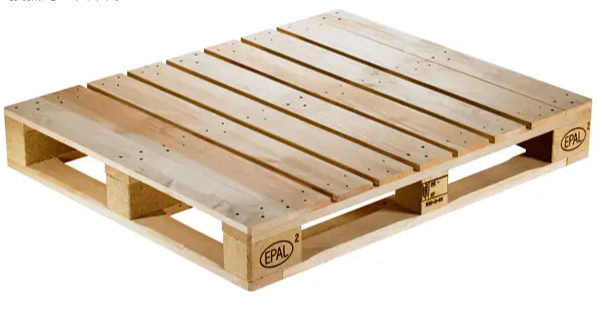Wooden Pallets: The Core of Modern Logistics and Packaging
In the transportation and warehousing of coffee beans, food ingredients, and finished beverages, unstable packaging stacking, high transportation losses, and difficulty complying with environmental regulations are operational pain points faced by many brands. These seemingly basic logistics and packaging issues not only directly impact product safety and delivery efficiency but also indirectly drive up overall operating costs.
As a flexible solutions provider with years of experience in customized flexible packaging, MTPAK collaborates with bakers, food brands, and sustainability leaders to optimize packaging systems. We understand that choosing the right wooden pallet is often crucial for improving supply chain resilience and reducing cargo damage.
This article will provide a pragmatic analysis of the balance between wooden pallet material, structure, compliance, and cost, helping you make a choice that best meets your needs.
What is the origin and development background of wooden pallets?
The use of wooden pallets dates back to the mid-20th century, when the growth of international trade and mechanized transportation necessitated a more efficient and standardized method for stacking and transporting goods. Wood, due to its durability, availability, and renewable nature, became the preferred material for pallets. With the continuous advancement of logistics and warehousing technologies, wooden pallets have evolved into a variety of structures and sizes to accommodate different cargoes and transportation methods.
Today, wooden pallets are the most widely used type of pallet worldwide. Although plastic and metal pallets are gradually emerging in some applications, wooden pallets still dominate due to their cost advantages and versatility.
What are the main types of wooden pallets?
Wooden pallets can be categorized into the following types based on their structure and purpose:
Single-sided pallets
They are suitable for one-way use and are typically used for general stacking and shipping in warehouses. Their relatively lightweight and low cost make them an economical choice for many businesses.
Double-sided pallets
They are more sturdy and can be used in both directions. For heavy goods or those that require repeated use, double-sided pallets offer greater stability and durability.
Wing-shaped pallets
The pallet deck extends beyond the edge of the load-bearing beams, providing greater protection for goods and facilitating packaging and securing.
Customized pallets
Businesses can choose custom pallets based on the size, weight, and transportation method of specific goods. These pallets must better meet specific needs and improve transportation and warehousing efficiency.
Different pallet types are suitable for different scenarios. When choosing a pallet, businesses should consider their product characteristics and supply chain needs to avoid additional costs or logistical challenges caused by inappropriate choices.
What are the advantages of wooden pallets over pallets made of other materials?
While alternatives such as plastic and metal pallets exist in the market, wooden pallets still offer significant advantages:
l Cost Control: Wooden pallets have low production costs and are more economical to purchase, making them particularly suitable for businesses with high-volume needs.
l Strong Load Capacity: The natural strength of wood enables pallets to withstand the transport and stacking of large quantities of goods.
l Versatile Applicability: Wooden pallets can be used for a wide range of goods and transportation methods, making them highly versatile.
l Easy Repair: Even if a pallet is damaged during use, it can be repaired by replacing parts of the wood, extending its lifespan.
l International Standardization: Fumigated or heat-treated wooden pallets meet international phytosanitary requirements, ensuring smooth entry into major export markets.
l Environmentally Friendly Recycling: Wooden pallets are recyclable and can be recycled and reprocessed after their useful life, thus aligning with sustainable development.
For this reason, wooden pallets still hold approximately 70% of the global market share, becoming a core tool in the logistics industry.
What are the application scenarios of wooden pallets in logistics and warehousing?
Warehousing and Stacking
Pallets help standardize the stacking of goods, saving storage space and facilitating the operation of machinery such as forklifts and stackers.
Transportation and Loading and Unloading
Wooden pallets improve loading and unloading efficiency, reduce manual labor, and shorten the time it takes to move goods in and out of the warehouse and load them onto trucks.
International Trade and Export
Wooden pallets that meet international quarantine requirements can smoothly pass customs inspections, avoiding delays or returns due to non-compliant pallets.
Food and Beverage Industry
Wooden pallets are widely used in the transportation of bulk foods such as coffee beans, tea, and grain, forming an effective transport combination with food packaging bags.
E-commerce and Retail Distribution
In the e-commerce industry, wooden pallets help businesses achieve rapid sorting and delivery of goods, improving the responsiveness of logistics processes.
What is the role of wooden pallets in sustainable development?
With growing environmental awareness, businesses are increasingly prioritizing sustainable development when selecting logistics tools. Wooden pallets, as a renewable material, can be disassembled, recycled, or reused at the end of their lifespan. Some of the pallet wood can also be used to manufacture other wood products or as biomass fuel, contributing to the circular economy.
This means that while using wooden pallets, businesses can better implement environmental principles and enhance their brand image as socially responsible.
Conclusion
Wooden pallets are more than just a means of transportation; they are a critical component of modern logistics and supply chain management. Their cost-effectiveness, versatility, and load-bearing capacity have enabled countless businesses worldwide to efficiently transport and store goods.
For businesses seeking to improve logistics efficiency, reduce shipping losses, and ensure international trade compliance, choosing the right wooden pallet is as important as choosing the right packaging solution.
As a professional flexible packaging solutions provider, MTPAK not only provides high-quality packaging products but also helps clients achieve comprehensive optimization from product packaging to logistics and transportation through a systematic service approach.
If your business is seeking more efficient and reliable packaging and transportation support, please contact MTPAK for exclusive professional consultation and customized solutions.
Email: account@mtpak.com
Contact us: https://mtpak.com/contact-mtpak



